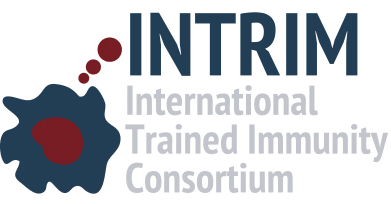Research topic: Trained immunity and myelopoiesis
Innate immune memory, in the context of infection or vaccination, has a beneficial role in secondary infection outcome or may contribute to secondary inflammatory responses. Innate immune memory is governed by an immunometabolic program that results in phenotypic alterations in innate immune cell populations. Although this process has been studied in monocytes and macrophages, the involvement of hematopoietic and myeloid progenitor cells, as well as other innate immune populations, like myeloid-derived suppressor cells, in the process of innate immune memory (trained innate immunity) is unknown.
Hematopoietic progenitor cells, residing in the bone marrow, regulate the maintenance of hematopoiesis and the response of the hematopoietic system to several stimuli (infectious or inflammatory), driving the production of differentiated blood cells. In addition, hematopoietic progenitors are critical for maintaining hematopoiesis after chemotherapeutic challenges that may result in myeloablation.
Our group aims at investigating the role of trained immunity in the function of hematopoietic progenitor cells in myelopoiesis.
In brief, we are studying the effect of training (e.g. by beta glucan) in the regulation of myelopoiesis in disease models. To this end, we study the role of β-glucan-induced training in the recovery of myelopoiesis upon models of iatrogenic myeloablation, including chemotherapy- induced myeloablation, as well as stress hematopoiesis in the context of systemic inflammation. We also investigate the immunometabolic alterations that trained immunity programs induce in hematopoietic progenitors. In the next few years we aim to firmly establish the role of trained immunity in the regulation of hematopoiesis at the level of progenitor cells.
Moreover, we study whether the immunometabolic alterations in progenitor cells influence the phenotype of differentiated myeloid cell populations, and more specifically the function of myeloid-derived suppressor cells and their function in disease models.
Finally, we are studying if trained immunity programs are involved in the regulation of inflammatory cell recruitment in the context of metabolic-inflammatory disease.
Group leaders
- Prof. Dr. Triantafyllos Chavakis
- Institute for Clinical Chemistry and Laboratory Medicine, Faculty of Medicine, Technische
- Universität Dresden, Dresden, Germany
Group members
- Ioannis Mitroulis, MD, PhD
- Ioannis Kourtzelis, PhD
- David Sprott, MSc
Selected Publications
- Chavakis T, et al. J. Exp. Med. 198:1507-15, 2003.
- Orlova V, et al. J Exp Med. 203:2703-14, 2006.
- Isermann B, et al. Nature Medicine, 13:1349-58, 2007.
- Orlova VV, et al. EMBO J. 26:1129-39, 2007.
- Choi EY, et al. BLOOD 111:3607-14, 2008.
- Choi EY, et al. Science, 322:1101-04, 2008.
- Wolf R, et al. Science Translational Medicine, 2:61ra90, 2010.
- Eskan MA, et al. Nature Immunology, 13: 465-473, 2012.
- Moutsopoulos NM, et al. Sci Transl Med. 26;6:229ra40, 2014.
- Chatzigeorgiou A, et al. Proc Natl Acad Sci USA. 111:2686-91, 2014.
- Chatzigeorgiou A, et al. Hepatology, 60:1196-2010, 2014.
- Weber GF, et al. Science, 347:1260-5, 2015.
- Pruenster M, et al. Nature Communications, 6:6915, 2015.
- Maekawa T, et al. Nature Communications, 6:8272, 2015.
- Shin J, et al. Science Translational Medicine, 7(307):307ra155, 2015.
- Norata GD et al., Immunity, 43:421-34, 2015
Financial support
German Research Foundation, European Research Council
